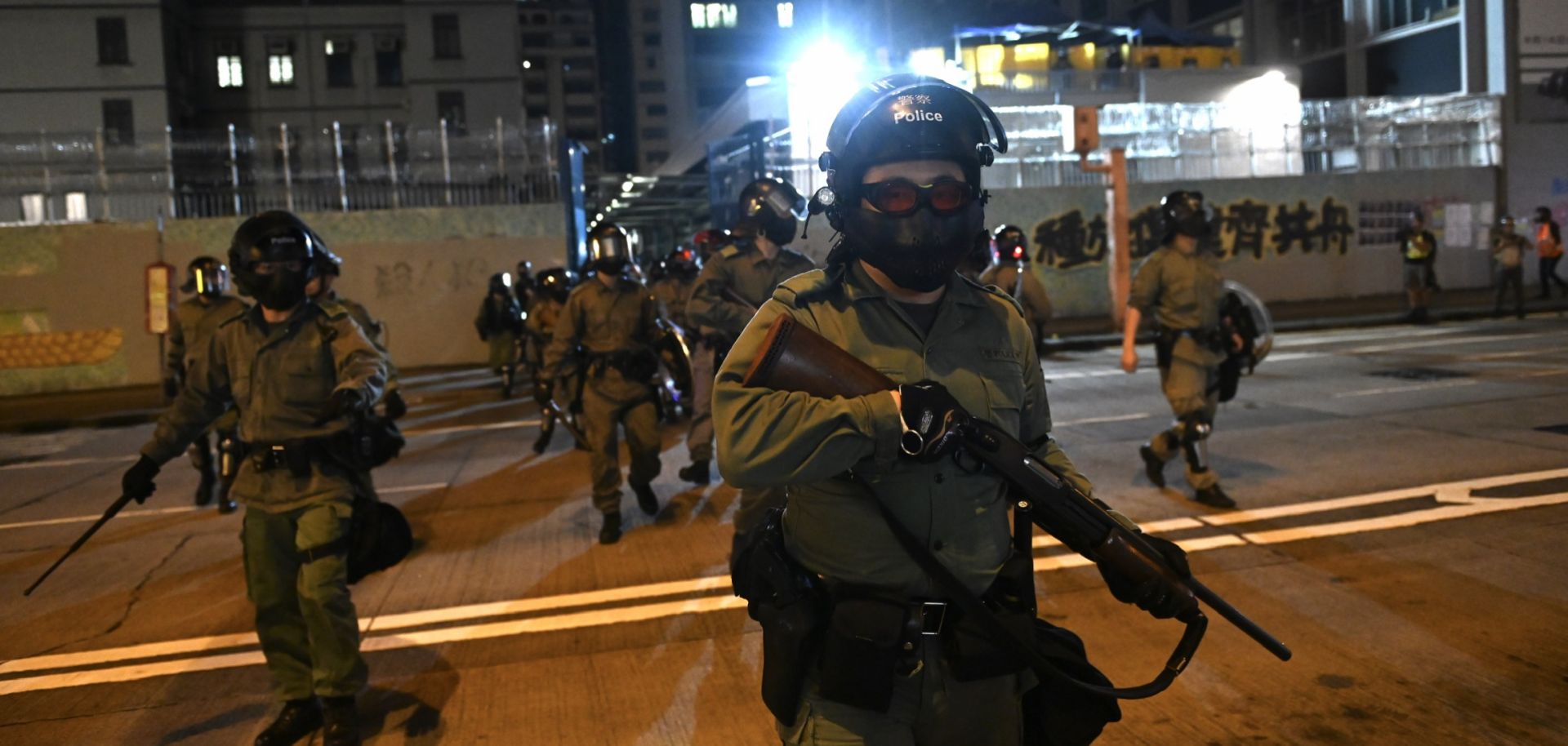COLUMNS
In Hong Kong, Beijing Will Choose Chinese Sovereignty

Oct 10, 2019 | 09:00 GMT

Hong Kong riot police stand guard outside a police station on Oct. 7. Protesters in Hong Kong have issued five major demands. Their demand for universal suffrage is, at its core, a call for self-determination and is one that Beijing will not tolerate.
(VERNON YUEN/NurPhoto via Getty Images)
Highlights
- The Hong Kong protests reveal an unbridgeable gap over the future of the city.
- Hong Kong remains important to Beijing for political and economic reasons, but national unity will ultimately trump the other two.
- However the current political crisis ends, businesses and governments will be forced to revisit their long-term plans in Hong Kong.
Subscribe Now
SubscribeAlready have an account?
